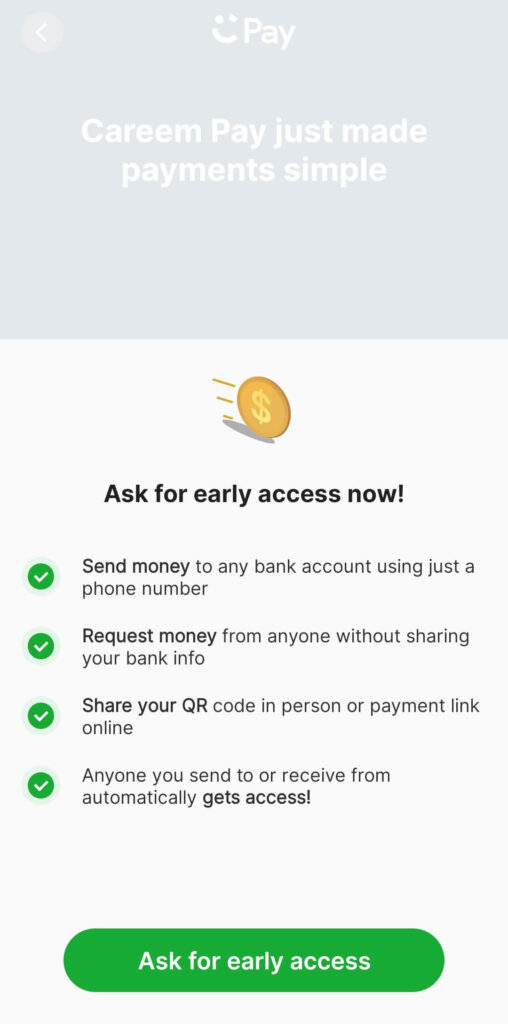In June last year, Careem became one of the earliest super apps to debut in the Middle East. Just months into the pandemic, CEO and Co-founder of the company Mudassir Sheikha announced the launch on Twitter.
“Excited to launch the first version of the Careem Super App. It’s live in Dubai and a few other cities…”
the tweet said.
The Super App brings us closer to @careem’s purpose of simplifying the lives of people in our region so that they can spend more time on things that really matter and on realizing their full potential. 2/3
— Mudassir Sheikha (@MudassirSheikha) June 4, 2020
Super apps have been wildly successful in Asia (with China in the lead), but not so much outside of it.
For instance, as this CNBC report points out, the mix of factors that led to the initial spurt of growth for super apps in China is unique to the country, and difficult to replicate elsewhere.
These include a blanket ban on Western social media and Google, relatively lax regulation on data and personal privacy protection at the time, and a more controlled market that may not have as much competition as freer ones.
And so, this space is yet to see successes such as China’s WeChat and Alipay, but early movers Southeast Asia’s GoTo, Grab or Kakao, or India’s PayTM have come quite close.
Success can vary within these apps as well. For instance, the bulk of Grab’s revenues come from its mobility services. In contrast, revenues from financial services (US$6 million) comprise barely 5% of revenues generated from mobility (US$118 million).
Elsewhere, PayTM has over 350 million users for its popular P2P payments solution. At the same time, however, its other services haven’t seen as much success (and some, such as PayTM Mall, have outrightly failed).
Subsequently, the launch of the super app was an interesting moment for the Middle East region, where Careem is one of the first few. And with Careem making broader moves into the P2P payments space, arguably one of the most popular fintech trends in the region, the strategic outlook of this Middle Eastern super app will be one worth looking out for.
First, some context on Careem…
Careem launched in 2012 in Abu Dhabi and Dubai, as a “value-added aggregator of private cars (limos) and taxis in the Middle East.”
Founded by Sheikha and Magnus Olsson, former McKinsey consultants, the company was initially launched with a scheduled car booking facility (cars would be assigned 1-2 hours before pick up, based on location and availability).
At this point, users were booking rides through web applications, emails, or call centers. Careem branched into on-demand ride hailing in February next year, simultaneously launching its mobile app as well.
By October 2018, Careem had raised well over US$700 million in a series of fundraises, including three US$100+ million funding rounds (data according to Crunchbase). And in 2019, the company was picked up by Uber in an acquisition deal that amounted to US$3.1 billion.
The acquisition closed for most of Careem’s major markets in January 2020, and in June 2020, the super app was launched.
Prior to becoming a consolidated super app, Careem offered a different mix of services across the near-90 cities in the MENA-Pakistan region that it was present in.
Now, it offers ride hailing and bike spring, food and grocery orders, delivery services, bill payments, cleaning services, and even the option to buy flowers. In some markets, such as the UAE, Careem users can even book a PCR test or a vaccination appointment from the app.
The company launched a subscription programme earlier this year. Available only in Dubai with plans for expansion, Careem Plus works as a loyalty programme offering cash-back offers.
Available in a total of 84 cities, Careem’s biggest markets include Saudi Arabia (29 cities), Egypt (25 cities) and Pakistan (15 cities). As of December last year, Careem recorded over 48 million users for its super app, with 60 million transactions processed through its payments vertical Careem Pay.
What is Careem Pay and where is it going?
Careem Pay works as a mobile wallet, powering transactions on the super app as well as P2P transactions. The P2P functionality is still in the early access stage, meaning that users will need to request access to the service. Access to new users is granted based on Careem Pay’s pilot size limits. Once in, users can send and request money through phone numbers, and make payments through QR codes and online payment links.

Wallet functionalities such as top-ups, wallet-to-wallet transfers and prepaid mobile recharges have been live in the market for a while now, Head of Strategy and Strategic Partnerships at Careem Pay Madiha Sattar tells Fintech News. What’s new is their P2P payments pilot, where money can now move outside Careem’s ecosystem and into users bank accounts.
Careem Pay was announced way back in 2018, but its P2P functionalities are only just beginning to take off – about three years since the solution was first launched. Sattar attributes the turnaround time to three behind-the-scenes aspects. On one hand, the team has been focusing heavily on product development, while on the other, their software development focus has been on building a more independent tech stack for Careem Pay. Meanwhile, the company has also been focusing on the licensing front, as well as building the “right partnerships,” Sattar said.
Beyond the internal developments at the company, payments as a fintech ecosystem is having a moment in the Middle East (even though Sheikha himself has admitted that the region remains cash-centric).
Countries such as Saudi Arabia and the UAE are increasingly looking to go cashless, while booming e-commerce in a contactless environment is fueling digital payments in the region. Meanwhile, digital wallets are likely to become a significantly influential digital payment method over the next five years as well.
So even though Careem Pay will be made available only in a handful of markets as Sattar notes, the payments app will have much to look forward to as it rolls out.
Featured image credit: Careem
Article updated with responses from Careem Pay.
Article has been corrected to accurately reflect details of Careem Pay’s P2P payments pilot.








No Comments so far
Jump into a conversationNo Comments Yet!
You can be the one to start a conversation.